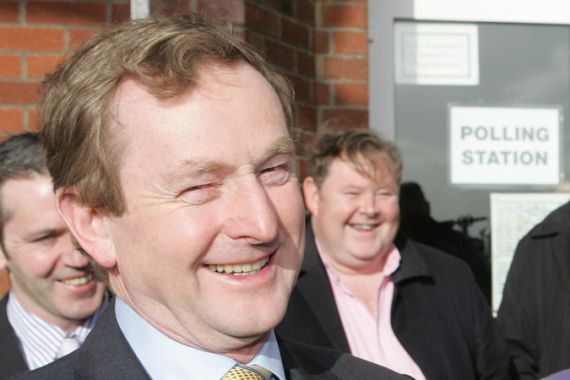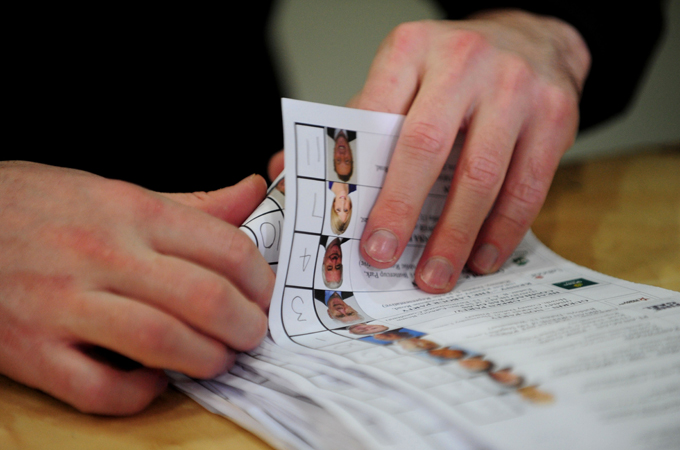Ireland parties form coalition govt
Centre-right Fine Gael, winner of last week’s election and centre-left Labour agree to form a coalition government.

 |
| The new coalition government will try to press European leaders to ease the terms of the country’s 85 billion euro EU/IMF bailout [EPA] |
Ireland’s two largest parties have agreed to form a new coalition government, clinching a quick deal that will allow it to press European leaders to ease the terms of the country’s 85 billion euro EU/IMF bailout.
The centre-right Fine Gael, winner of last week’s election, had been in talks since Monday with the second-placed, centre-left Labour after voters handed the ruling Fianna Fail a record defeat over its handling of Ireland’s economic meltdown.
“I am happy to tell you that we have concluded an agreement, some of the finer details are now being worked out for presentation to both parties,” Ireland’s prime minister in waiting, Enda Kenny, told reporters on Sunday.
Labour will ask both its party members and legislators to approve the programme for government later on Sunday, while Fine Gael’s parliamentary party will also meet to okay the deal.
The two parties took divergent views during the campaign on the scale of public sector cutbacks, the split between taxes and spending cuts, and the time frame for cutting the budget deficit to an EU limit of 3 percent of gross domestic product (GDP).
Both Kenny and Labour leader Eamon Gilmore said the deal reached on these points would be made known when the programme for government is published later on Sunday.
“They are issues that we will be signing off on in the morning,” Gilmore said, adding that he was happy with the structure of the government but refusing to say how many seats his junior party had secured at the cabinet table.
Both parties ran on a platform of renegotiating the rescue deal struck last November. While they may be given a reduced interest rate on the loans, demands for bondholders in Irish banks to shoulder more losses have been more or less ruled out.
Kenny acknowledged on Friday that many European governments opposed his wish to make senior bondholders share the pain and was told by one leader that there would be “no free lunches”.